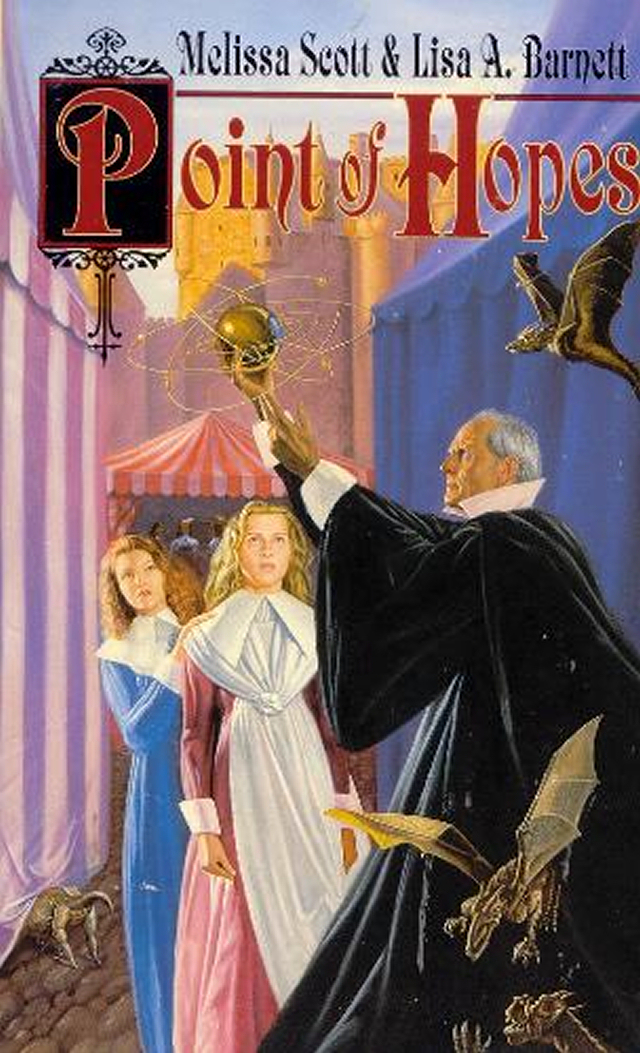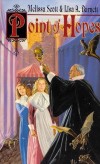 From the back cover:
From the back cover:
It is the time of the annual Midsummer Fair in the royal city of Astreiant, and the time of the conjunction of the spheres approaches, heralding the death of the monarch. Each year a few youngsters run away from home to go on the road with traders, but this year a far larger number of children than usual have gone missing during the Fair. Someone is stealing them away without a trace, and the populace is angry.
Nicolas Rathe, a city guard, must find the children and stop whatever dark plan is being hatched before the city explodes into chaos.
Review:
It took me nearly three years to finish reading Point of Hopes, and two months to write this review after I finally completed it. Those facts should give you a good indication of just how riveting this mystery isn’t.
Nicolas Rathe is a “pointsman†(basically a policeman) in the city of Astreiant. When dozens of children suddenly go missing, Rathe is on the case. He enlists a few friends to help—Philip Eslingen, a foreign mercenary to whom Rathe seems to be attracted, and a necromancer buddy from the local university who was, for some reason, played in my head by Paul Bettany. Primarily, Rathe’s investigation consists of visiting various parts of the city and talking to people to no avail, until finally a bit of evidence turns up on page 279. The three guys collectively put the pieces together, and I really liked the bits where they were working in concert. Too bad they were only together in the final 70 pages!
Thankfully, the setting of Point of Hopes is more intriguing than its central mystery. For one, gender equality is absolutely the norm. Just as many women as men participate in professions seen as traditionally male in our society, and many women are in positions of power. In the fantasy setting of Astreiant, your occupation is determined by the alignment of the stars at your birth, which reads to me as a metaphor for objectively selecting people for a job based solely on their abilities. Equality of sexual preference is also a facet of life in Astreiant—it’s not that same-sex relationships are merely tolerated: they’re commonplace. No one would think of considering them invalid or sinful.
Aside from not being very exciting, the most irritating aspect of Point of Hopes for me was the dire need for better editing. There were many, many, many instances where a comma was used in a spot that needed a semicolon and many pages that suffered from wall o’ text syndrome. I can’t help but feel like it would’ve read faster if it weren’t so dense-looking. Lastly, I wonder at some of the names. I tend to think characters’ names “aloud†in my head, and while this is obviously not a problem for the lead characters, I was stymied by names like “Cijntien.†Plus, it’s weird to have fantasy names like that alongside such normal ones.
Anyway, there is a sequel to this entitled Point of Dreams. I own it, so will likely read it someday, but at the rate I’ve gone with this story thus far, I wouldn’t expect a review until at least 2015!


 The Plot
The Plot